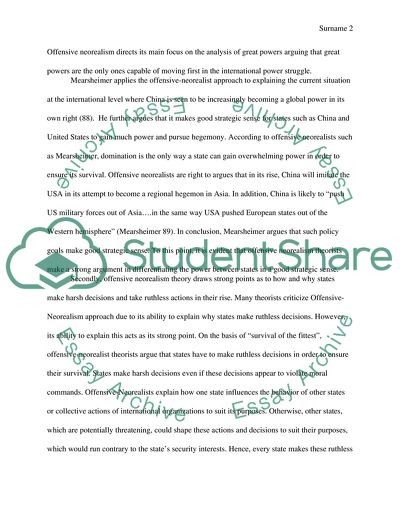Cite this document
(Offensive-Neorealism as the International Political Theory Literature review Example | Topics and Well Written Essays - 1250 words, n.d.)
Offensive-Neorealism as the International Political Theory Literature review Example | Topics and Well Written Essays - 1250 words. https://studentshare.org/social-science/1872540-the-three-stengths-and-weaknesses-of-offensive-neorealism
Offensive-Neorealism as the International Political Theory Literature review Example | Topics and Well Written Essays - 1250 words. https://studentshare.org/social-science/1872540-the-three-stengths-and-weaknesses-of-offensive-neorealism
(Offensive-Neorealism As the International Political Theory Literature Review Example | Topics and Well Written Essays - 1250 Words)
Offensive-Neorealism As the International Political Theory Literature Review Example | Topics and Well Written Essays - 1250 Words. https://studentshare.org/social-science/1872540-the-three-stengths-and-weaknesses-of-offensive-neorealism.
Offensive-Neorealism As the International Political Theory Literature Review Example | Topics and Well Written Essays - 1250 Words. https://studentshare.org/social-science/1872540-the-three-stengths-and-weaknesses-of-offensive-neorealism.
“Offensive-Neorealism As the International Political Theory Literature Review Example | Topics and Well Written Essays - 1250 Words”. https://studentshare.org/social-science/1872540-the-three-stengths-and-weaknesses-of-offensive-neorealism.


